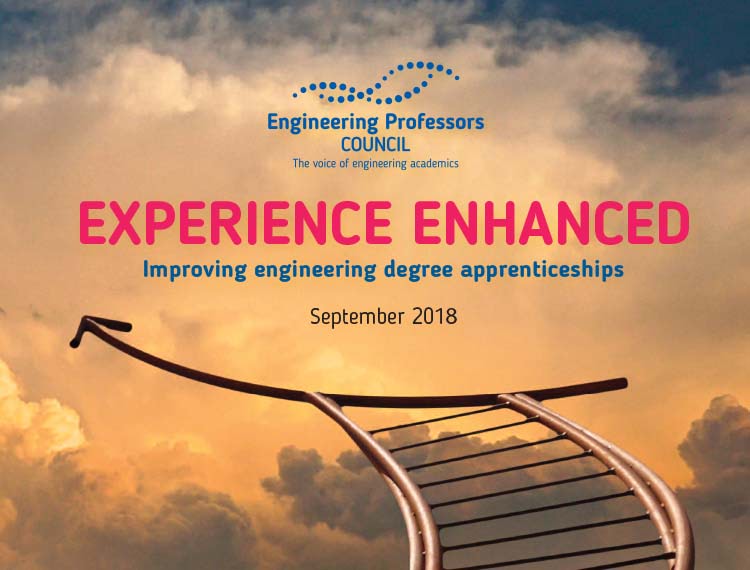The Engineering Professors’ Council calls for changes to degree apprenticeships

Today, Monday 10 September, The Engineering Professors’ Council published a report, which calls for changes to degree apprenticeships.
Degree apprenticeships have grown in popularity but that university professors claim that that too much emphasis is being placed on tailoring them towards specific ‘overbearing’ employer needs, and that this could risk presenting them as an inferior option to a traditional degree.
Professor Mike Sutcliffe, chair of the EPC’s degree apprenticeships working group that authored the report, commented:
The UK has a desperate shortage of engineering skills. Degree apprenticeships could be a game changer in meeting that need and encouraging people from many new and diverse backgrounds into the sector. However, that will only happen if we get them right.
Degree apprenticeships are still in their infancy, which is why the EPC feels it’s important to highlight some inconvenient truths while it’s still relatively easy for everyone to get behind a programme of helping them realise the potential.
Jonathan Seville Chair, Education & Skills Committee Royal Academy of Engineering, said:
In the face of a shortage of engineering and technical skills, degree apprenticeships are emerging as an important feature of the education and training landscape and the Government’s ambitions for their future are substantial.
The Skills Minister the Rt Hon Anne Milton MP sees them as a challenge to university as the “default” post-school pathway and her predecessor (and now Chair of the Education Select Committee) Robert Halfon MP has stated a wish to see 50% of students at university enrolled on degree apprenticeships. There is similar commitment to the policy from all political parties.
Since the introduction of the Apprenticeship Levy, degree apprenticeships have proved to be the one level of apprenticeship where the numbers are rising not falling. There are currently 171 apprenticeship Standards at all levels (as of August 2018) approved for engineering, and 15 Standards at levels 6 and 7. Large engineering companies, such as Siemens, are already involved in discussions with universities about developing apprenticeships at level 8 (doctorate level).
Degree apprenticeships may offer a bright new future for engineering in the UK. Innovation, however, always brings challenges. The best solutions often take time to evolve and now – while the models are still being refined – is the moment we should be exploring what is most effective and what needs further development.
The insights and experiences of all those forging the new approaches are welcome, especially the Engineering Professors’ Council which represents the engineering academic community. In July 2017, the Royal Academy of Engineering was delighted to host the EPC’s Degree Apprenticeships Forum which saw the publication of a discussion paper “Designing apprenticeships for success“. Since then, the RAEng has been proud to facilitate a discussion of these ideas among the whole engineering sector.
Now we warmly welcome “Experience enhanced“, the latest important contribution on degree apprenticeships from the EPC. It is important that the voice of academic experts is heard and we embrace the EPC’s positive approach and collaborative spirit in striving to ensure the success of engineering degree apprenticeships for the nation, for employers, for the engineering sector and, most of all, for learners themselves.
The EPC’s reflections and recommendations provide an important input for Government and a stimulus for all stakeholders, including the Academy, to continue to participate in the discussion.
Apprenticeships and Skills Minister Anne Milton said:
For too long full-time academic degrees have been seen as the only route into a successful career. We want to change that, so we are transforming technical education to put it on a par with our world-class universities.
You can now gain a degree while getting a salary, training on the job and having your tuition fees paid for you. Degree apprenticeships are available in a wide range of subjects including aerospace engineering, nursing, nuclear science and architecture. They offer those that might not have considered higher education as an option the chance to pursue a career path that is right for them. Degree apprenticeships also appeal to those who want to gain on the job experience whilst also getting a degree.
Over 100 universities are now on board and able to offer degree apprenticeships, including many Russell Group universities – and we’re excited to see the opportunities they offer as they grow their schemes.
So make sure you have a look at all the options out there, and choose the route that is right for you and will take you to the future you want!

Responses